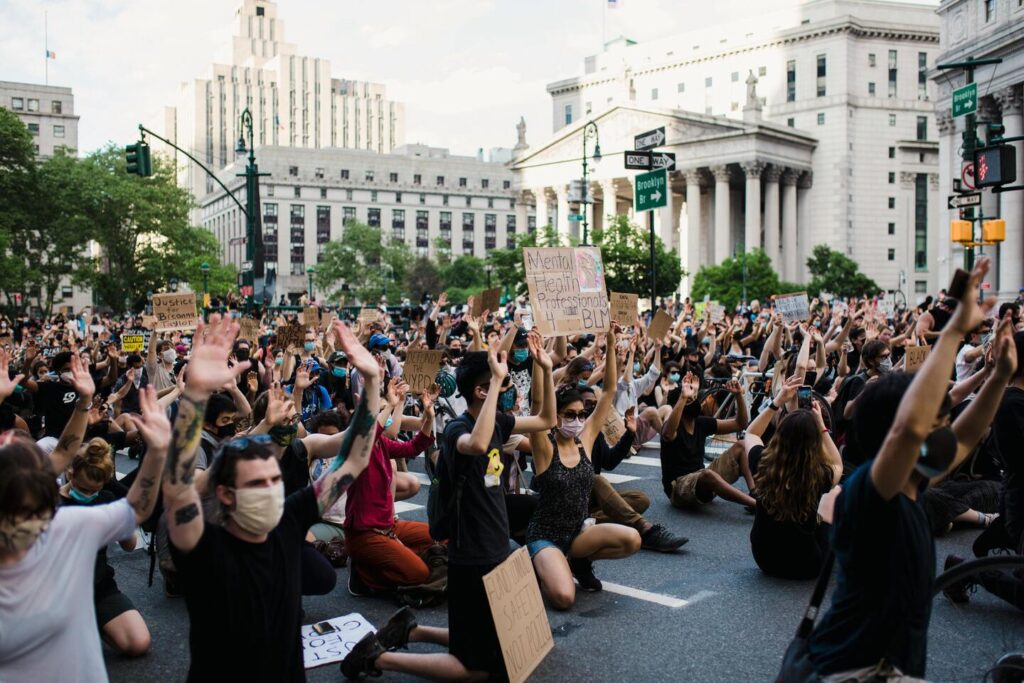Democracy, in its purest form, has long been heralded as the pinnacle of governance, a system that promises equality, freedom, and representation for all. Originating in ancient Greece, democracy was built on the idea that every citizen should have a voice in determining their government’s actions. However, the traditional democratic model that has been implemented in modern times is now a broken institution. Far from ensuring true representation of the people’s will, democracy has been hijacked by special interests, plagued by inefficiency, and manipulated by the powerful few. In today’s complex globalized world, it is clear that traditional democracy no longer works. It is time to rethink governance and explore alternative methods of representation, such as sortition, which may better serve the needs of modern society.
The Crisis of Representation
One of the foundational promises of democracy is that it reflects the will of the majority. However, in practice, this has become far from the truth. Electoral systems are increasingly dominated by two forces: money and partisanship. With elections requiring vast sums of capital, those with the deepest pockets hold disproportionate sway over policy-making. Politicians, often beholden to corporate interests or wealthy donors, prioritize these interests over those of ordinary citizens. As a result, the policies that get passed are frequently out of touch with what the majority of people actually want.
For example, in the United States, polls consistently show widespread support for policies such as universal healthcare, stricter gun control, and stronger climate action. Yet, despite public opinion, these initiatives often stall or are significantly watered down due to the influence of lobbyists and political donors. In essence, elected officials are not truly representing their constituents but rather the elite groups that fund their campaigns. This phenomenon is not limited to the U.S.; across many democratic nations, powerful interest groups have an outsized influence on elections, undermining the principle of equal representation.
The Tyranny of the Minority
While democracy claims to function by the will of the majority, it is increasingly being manipulated to serve the interests of a minority. Gerrymandering, voter suppression, and electoral manipulation have eroded the legitimacy of democratic systems. Political parties redraw district lines in ways that allow them to win elections without genuinely representing the majority of voters. As a result, in many countries, a political party can maintain power even when a significant portion of the population votes against them.
Furthermore, many democratic systems operate through a “winner-takes-all” approach. This means that even if a candidate wins by a slim margin, they gain total control over decision-making, leaving large portions of the population without meaningful representation. Instead of fostering collaboration and compromise, this breeds polarization and encourages divisive rhetoric. The growing political partisanship seen in countries like the United States, the United Kingdom, and Brazil illustrates the failure of democracy to unify or accurately represent diverse populations.

Inefficiency and Gridlock
Democratic governance often results in political gridlock. Parliaments and congresses, divided along party lines, struggle to pass meaningful legislation. The constant push-and-pull between competing political parties delays decision-making and makes governments reactive rather than proactive. In moments of crisis—such as the COVID-19 pandemic or climate change—this inefficiency can have dire consequences. Governments must be agile and capable of swift, informed action, yet democratic institutions are often paralyzed by bureaucratic procedures and partisan bickering.
Moreover, elections themselves have become an inefficient means of governance. With election cycles becoming shorter and more frequent, politicians are perpetually campaigning rather than governing. Their primary focus becomes re-election rather than crafting long-term policies that benefit society. The result is short-termism, where leaders cater to immediate, populist demands rather than addressing systemic issues.
The Problem of Informed Decision-Making
Another key issue with democracy is the assumption that voters are adequately informed and capable of making complex policy decisions. In truth, the average voter may not have the time, expertise, or resources to fully understand intricate issues such as climate policy, healthcare reform, or financial regulation. This is not a criticism of voters but rather a recognition of the fact that modern governance has become increasingly technical and specialized.
Electing representatives based on short campaigns that simplify complex issues into soundbites is hardly a sufficient method for creating well-informed policies. Politicians, eager to secure votes, often rely on emotional appeals or sensationalist rhetoric rather than substantive debate. This results in policy being shaped by popular opinion rather than expert knowledge, a dangerous dynamic in an era defined by technological and environmental challenges.
Alternative Models: Sortition as a Path Forward
Given these flaws, it is essential to explore alternative forms of governance that can address the failures of traditional democracy. One promising option is sortition, the practice of selecting political representatives through random selection, similar to how juries are chosen in many judicial systems.
Sortition has several key advantages. First, it removes the influence of money and power from the political process. Since representatives are chosen randomly, there is no need for costly election campaigns or the influence of wealthy donors. This ensures that individuals from all walks of life have an equal chance of participating in governance, promoting true diversity and representation.
Second, sortition can help mitigate political partisanship. Without the need to align with a political party or campaign on divisive issues, representatives chosen by sortition are more likely to deliberate in good faith, guided by the common interest rather than party ideology. By randomly selecting individuals, you also reduce the risk of populist demagogues who manipulate public sentiment for personal gain.
Third, sortition allows for more informed decision-making. Randomly selected citizens can be given the time, resources, and expert guidance necessary to understand complex issues before making decisions. This model has been used successfully in citizen assemblies across the world, from Ireland’s referendum on same-sex marriage to the recent citizens’ climate assemblies in France and the UK. In these cases, ordinary citizens were able to deliberate on complex policy issues, reaching informed and balanced decisions that aligned with the public good.
Sortition in Practice: A Blueprint for Modern Governance
While it may seem radical to propose replacing elected representatives with randomly selected ones, history shows that sortition was once a cornerstone of democracy in ancient Athens. In fact, sortition was used for most political offices in Athens because the Greeks believed that elections favored the wealthy and the well-connected.
A modern implementation of sortition could involve randomly selecting a representative sample of citizens to serve in legislative bodies, supplemented by expert advisory councils. These citizen-representatives would serve for limited terms and be given the necessary training and information to make informed decisions. They would be free from the pressures of re-election, enabling them to focus on long-term policy solutions rather than short-term political gains.
Conclusion: Rethinking Representation
Traditional democracy, in its current form, is increasingly unable to represent the will of the people. Between the undue influence of money, the inefficiency of partisan politics, and the growing complexity of modern governance, it is clear that our systems of representation are broken. Alternative models, such as sortition, offer a viable solution. By selecting representatives randomly, we can remove the corrosive effects of wealth and power from politics and ensure that decisions are made by informed citizens acting in the public interest. In this way, we can build a more inclusive, fair, and effective system of governance—one that truly represents the will of the people.
Recommended Reading:
 How We Can Fix Things by Kizzi Nkwocha is a bold and visionary guide that addresses some of the most urgent challenges facing our world today. From the ongoing conflict in the Middle East to the persistent crises of famine and hunger, Nkwocha offers a refreshingly practical approach to tackling these complex issues.
How We Can Fix Things by Kizzi Nkwocha is a bold and visionary guide that addresses some of the most urgent challenges facing our world today. From the ongoing conflict in the Middle East to the persistent crises of famine and hunger, Nkwocha offers a refreshingly practical approach to tackling these complex issues.
Drawing on his expertise as the creator of Business Game Changer Magazine, Nkwocha combines innovative thinking with real-world solutions that can help usher in a new era of equality, prosperity, peace, and harmony. This book doesn’t just outline the problems; it provides actionable advice that empowers readers to make a difference.
Whether you’re a policymaker, activist, or concerned global citizen, How We Can Fix Things is a must-read for anyone who wants to be part of the solution. Discover the transformative power of Nkwocha’s insights and learn how, together, we can create a better future for all.





